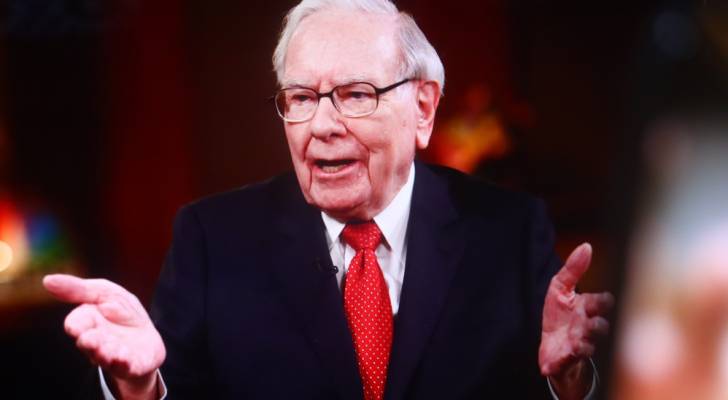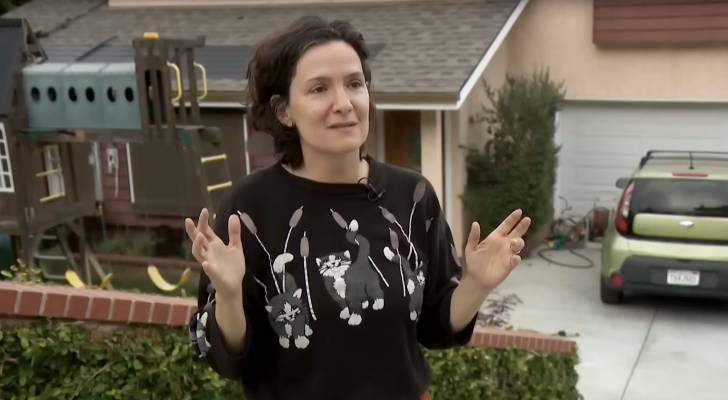We adhere to strict standards of editorial integrity to help you make decisions with confidence. Some or all links contained within this article are paid links.
The head of America’s largest bank told an audience at the Institute of International Finance earlier this year that his team is running scenarios in preparation for a global conflict involving nuclear powers.
Jamie Dimon, CEO of JPMorgan Chase, told the crowd that war and nuclear proliferation are greater existential threats than climate change.
“World War III has already begun. You already have battles on the ground being coordinated in multiple countries,” Dimon said at the annual event in Washington, DC on Oct. 24.
Dimon named potential conflict between Western countries and China, Russia, Iran, or North Korea as far more concerning to him than any potential instability in the global financial markets.
JPMorgan Chase has “run scenarios that will shock you” in preparation for potential global conflict, Dimon told the audience.
Curious timing
Dimon’s alarming comments came on the same day as the conclusion of the BRICS Summit, where Brazil, Russia, India, China, South Africa, Iran, Egypt, Ethiopia, and the United Arab Emirates met to discuss deepening their integration.
However, Dimon may have had other reasons much closer to home for speaking on geopolitics to a finance crowd.
According to the New York Times, Dimon privately supported Kamala Harris for president, but didn’t want to do so publicly out of fear of retribution from Donald Trump. Dimon, a registered Democrat, was reportedly also hoping for a post as the Treasury Secretary in a Harris administration.
No matter what the markets have in store now that we’re post-election and expecting many policy changes with the incoming second Trump administration, you can still get solid advice on the future by speaking to an accredited financial professional. Advisor.com can help you find someone that’s right for you.
Advisor.com is an online platform that connects you with vetted financial advisors. Just answer a few quick questions about yourself and your finances, and the platform will match you with experienced financial professionals best suited to help you develop a plan to navigate the markets and continue building your wealth. You can view the advisors’ profiles, read past client reviews, and schedule an initial consultation for free with no obligation to hire.
What to own in times of crisis
Whether you are concerned about Dimon’s warnings or not, they might inspire you to start thinking about your own response to potential global instability.
Given the ongoing conflicts around the world and other uncertainties looming in the distance, it might be tempting to hide out in cash.
But many market veterans, including Warren Buffett, don’t exactly believe in stashing your savings under the mattress.
“The one thing you can be quite sure of is if we went into some very major war, the value of money would go down,” he told CNBC in 2014. “That’s happened in virtually every war that I’m aware of. So the last thing you’d want to do is hold money during a war.”
Consumers have learned firsthand the risk of holding money over the past few years of rampant inflation. What should investors own instead? Buffett has always believed in productive assets, and he stands by that even in times of crisis.
“You might want to own a farm, you might want to own an apartment house, you might want to own securities,” he said.
It’s easy to see the appeal of farmland. Whether boom or bust, people still need to eat. These days, it’s also easy to invest in farmland even if you know nothing about farming.
Investing in farmland
One thing is for certain: In times of war, the military needs constant and reliable food production. Investing in arable land, therefore, is a safe bet — Even Bill Gates thinks so.
If you’re an accredited investor, you’ll want expert advice and assurance that you’re investing in the country’s top farms.
FarmTogether is a company offering a range of funds and bespoke investment opportunities for those looking to put some capital to work in physical farmland. With more than $2.1 billion in capital deployed and a conservative and disciplined investment philosophy, the company hits on many of the key needs of investors looking for exposure to this asset class .
The company’s proprietary sourcing technology and experienced team with best-in-class partnerships means that less than 1% of the deals that enter the company’s pipeline are passed onto investors.
You’re required to be an accredited investor to take part in FarmTogether’s funds or to use any of the company’s bespoke services. But for those in this group looking at investing in farmland, this is an option worth considering.
Real estate
Real estate could offer another hedge against uncertainty.
Sure, real estate has its cycles, but no matter how much economic growth slows down, people need a place to live. And with real estate prices rising to unaffordable levels in many parts of the country, renting has become the only option for many people.
The segment is also becoming increasingly accessible to retail investors.
First National Realty Partners (FNRP), allows you to invest in institutional-quality commercial reale estate.
FNRP has developed relationships with the nation’s largest essential-needs brands, including Kroger, Walmart, and Whole Foods. The firm offers accredited investors access to these types of promising retail-anchored real estate investments.
Their team makes investing in commercial real estate convenient and simple by offering white-glove service to investors. They act as the deal leader, providing expertise and doing the legwork, while investors can use their secure platform to explore available deals, engage with experts and easily make an allocation.
Another option for safe real estate investing is in private real estate funds.
For example, DLP Capital offers tax-advantaged, private REITs, which are primarily focused on acquiring or developing affordable rental housing for working families across the country.
With a track record of identifying high-potential properties and over $5.2 billion in assets under management, DLP Capital helps investors capitalize on real estate’s long-term value. Plus, accredited investors in these funds can earn passive income through monthly, quarterly, or annual distributions.
DLP Capital’s funds target potential annual returns between 9% and 13% — almost at par with the S&P 500 index’s 10.26% returns annually. But you get two distinct advantages by investing in DLP Capital’s funds — portfolio diversification and a potentially lower tax bill.
This article provides information only and should not be construed as advice. It is provided without warranty of any kind.


